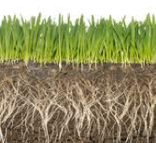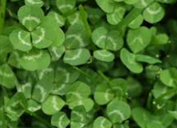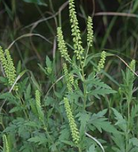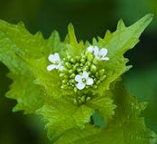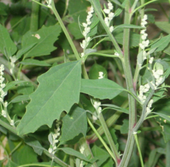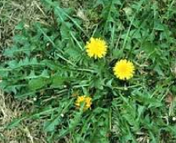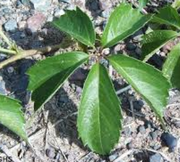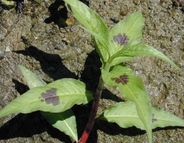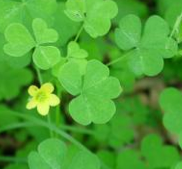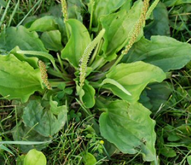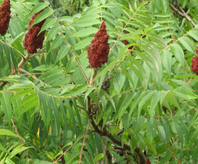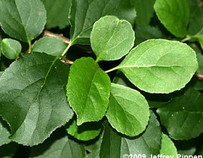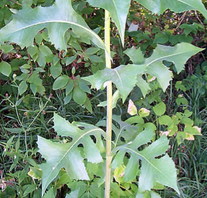This guide has instructions and tips for weeding garden beds, and some ideas to ponder while working:
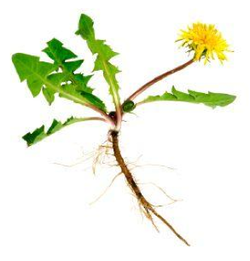
- weed (noun): a wild plant growing where it is not wanted and in competition with cultivated plants. (verb) to remove unwanted or inferior plants from an area of ground or garden.
- wild (adjective): 1 (of an animal or plant) living in the natural environment; not domesticated. (of people) not civilized; barbarous. 2 uncontrolled or unrestrained.
Food for thought:
Natural Succession:
Weeds aren't bad, evil, foreign, invasive, out to kill you our your plants or ruin your day. Rather than growing out of spite, their seeds hatch in habitats they thrive in, disturbed soil. These often short lived plants establish first after a disaster or disturbance upsets an ecosystem. Like new skin, they cover the exposed tissue of life, soil. Over time, herbs and grasses give way to shrubs, brambles and finally trees in a natural process called succession. In this part of the world, ecosystems trend towards becoming old growth forests. Conventional farms and gardens work against that trend by maintaining tilled soil. Because of the tendency for plants to work against disturbances and repair them, this form of farming is more difficult and energy intensive way to grow food than forest gardening, no-till perennial agriculture, or permaculture. By establishing desired perennial plants in our gardens, we reduce the need for weeding over time until plantings becomes self maintaining.
Weeds aren't bad, evil, foreign, invasive, out to kill you our your plants or ruin your day. Rather than growing out of spite, their seeds hatch in habitats they thrive in, disturbed soil. These often short lived plants establish first after a disaster or disturbance upsets an ecosystem. Like new skin, they cover the exposed tissue of life, soil. Over time, herbs and grasses give way to shrubs, brambles and finally trees in a natural process called succession. In this part of the world, ecosystems trend towards becoming old growth forests. Conventional farms and gardens work against that trend by maintaining tilled soil. Because of the tendency for plants to work against disturbances and repair them, this form of farming is more difficult and energy intensive way to grow food than forest gardening, no-till perennial agriculture, or permaculture. By establishing desired perennial plants in our gardens, we reduce the need for weeding over time until plantings becomes self maintaining.
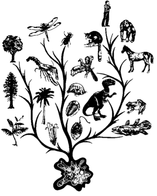
Family Reunion Moments:
Plants are beings alive on the same planet as ourselves, and we are therefore twigs on the same family tree. We are truly cousins, not just in a metaphorical or technical sense. Can you approach weeding, as any interaction with a plant, as a 'family reunion moment'? We have a choice in how we approach this task. Are we vengefully killing bad-guys who have illegally trespassed into our garden? Or are we gently selecting out our living relatives, who we recognize have chosen to live in the garden to help return it to old growth forest, but whom we ask to sacrifice their bodies so that we may keep these gardens accessible and that the vegetables we've planted may thrive? We can weed with respect for the powers of plants, and gratitude for the gifts they offer the community of life, and we might all feel different while doing so!
Plants are beings alive on the same planet as ourselves, and we are therefore twigs on the same family tree. We are truly cousins, not just in a metaphorical or technical sense. Can you approach weeding, as any interaction with a plant, as a 'family reunion moment'? We have a choice in how we approach this task. Are we vengefully killing bad-guys who have illegally trespassed into our garden? Or are we gently selecting out our living relatives, who we recognize have chosen to live in the garden to help return it to old growth forest, but whom we ask to sacrifice their bodies so that we may keep these gardens accessible and that the vegetables we've planted may thrive? We can weed with respect for the powers of plants, and gratitude for the gifts they offer the community of life, and we might all feel different while doing so!
Weeding Goals:
Help Yourself! aims to keep its public plantings, especially vegetable beds, as weed free as possible. We want the veggies to be large, familiar, recognizable, and high yielding. We want the public to feel these gardens are accessible and inviting. We want to model well maintained and cared for gardens, demonstrating strong organizational capacity of the project. Keeping them beautiful in the more conventional eyes of powerful institutions in the area, who may consider proposals to transform their lawns into edible landscapes, will lead to more opportunities for public edible landscaping.
Help Yourself! aims to keep its public plantings, especially vegetable beds, as weed free as possible. We want the veggies to be large, familiar, recognizable, and high yielding. We want the public to feel these gardens are accessible and inviting. We want to model well maintained and cared for gardens, demonstrating strong organizational capacity of the project. Keeping them beautiful in the more conventional eyes of powerful institutions in the area, who may consider proposals to transform their lawns into edible landscapes, will lead to more opportunities for public edible landscaping.
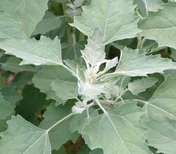
Weeding 101:
Pull the plants gently out of the soil, trying to get their roots. They come up easier if the soil is damp, like after a rain. Shake the dirt of the roots back into the garden beds. Check for seeds or fruits on the plants. If there aren't any, you can lay their bodies back down in the garden as mulch, root side up so they will dry out and die. If there are seeds or fruits, don't put them back in the bed. You can make piles in the paths, and dump them nearby.
If you can't beat them, eat them!
Help Yourself offers free local produce in exchange for weeds pulled from planting areas. You may redeem the foods yourself, consult the plant list below for more information! In addition to eating them, you can dry many species for tea, make tinctures for medicine, salves for skin conditions, compost, string, chicken food, and more. Remember that wild plants are many times more nutritious than cultivated vegetables, are organic, have medicinal properties, and are free and abundant!
Pull the plants gently out of the soil, trying to get their roots. They come up easier if the soil is damp, like after a rain. Shake the dirt of the roots back into the garden beds. Check for seeds or fruits on the plants. If there aren't any, you can lay their bodies back down in the garden as mulch, root side up so they will dry out and die. If there are seeds or fruits, don't put them back in the bed. You can make piles in the paths, and dump them nearby.
If you can't beat them, eat them!
Help Yourself offers free local produce in exchange for weeds pulled from planting areas. You may redeem the foods yourself, consult the plant list below for more information! In addition to eating them, you can dry many species for tea, make tinctures for medicine, salves for skin conditions, compost, string, chicken food, and more. Remember that wild plants are many times more nutritious than cultivated vegetables, are organic, have medicinal properties, and are free and abundant!
